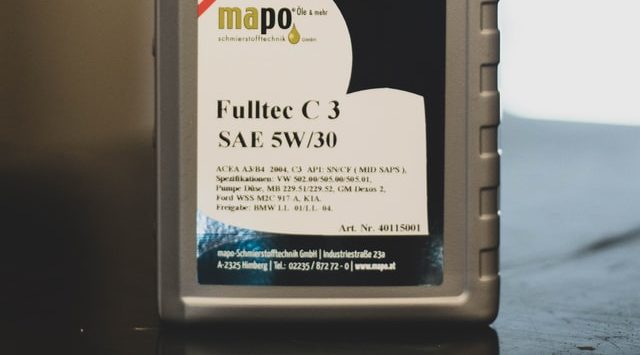If you stay in a location that usually gets plenty of snow, you understand the importance of a snowblower. With climate change, the need to get a snowblower for the snowy day increases. A snowblower can only perform its function if it is operating smoothly. To do that, it needs top-quality oil and decent power (gas or electric).
The oil in your snowblower makes it start quickly and also makes operation easy. Figuring out what oil to use in a snowblower can be difficult. The wrong choice of oil can cause you to leave grime behind, which would affect the snowblower’s ability to start. This article covers what oil to use in a snowblower and how to figure out the ideal choice for you. By the end of this article, you’d know:
- Engine oil basics
- How to choose the best oil for your snowblower
Contents
So, what kind of oil for snowblower is the best?
In summary, the oil you would be using is mostly an SAE 5W-30 oil. This is arguably the best oil for snowblowers because it ensures you get the best protection in all temperatures.
Engine oil basics
If you’re new at purchasing engine oil, chances are you’re confused about the numbers and letters on the packaging. However, these numbers and letters are vital because they help you determine the quality and thickness of the oil. Both features are crucial for engine maintenance and should therefore be critically considered.
These numbers are consistent but depend on the type of brand you go with. When you understand these labels, you’ll find it easy to choose the best oil for your snowblower. To begin, you should always go for 4-cycle engine oil.
The thickness of your oil is vital for engines running in freezing temperatures like your snowblower. The first number you see on the oil determines the oil’s viscosity in cold temperature. The lower it gets, the colder the temperature the oil can protect your engine at.
It means that when the number is 5, it can protect your engine at -25 Fahrenheit. The second digit is the oil’s viscosity at an average temperature. Sometimes, you might notice a ‘W’ after the first number. It shows that the oil is ideal in freezing temperatures.
How to choose the best oil for snowblowers
Since snowblowers are basically for winter, the oil you would be using is mostly an SAE 5W-30 weight oil. This is arguably the best oil for snowblowers because it ensures you get the best protection in all temperatures. Your machine will start quickly and operate smoothly in low temperatures. However, there are two types of oil, and knowing which is best for you will help you determine what oil to use in a snowblower.
Grab this oil for your snowblower.
Synthetic oil vs. Standard Oil
Although it is pretty clear that the oil to use in a snowblower is 5W-30, there are different types. The two categories out there are synthetic oil and standard oil. Synthetic oil can withstand higher temperatures. They’re oil that is not only refined but distilled, purified, and broken down to get rid of impurities.
They also resist breakdown well and will keep your snowblower operating smoothly for a long time. They make use of top-quality base oil, unlike standard oil. This feature means that it will last 50% longer than the typical oil and require less maintenance.
Most synthetic oils also provide your snowblower’s engine with an additive to improve its performance. However, synthetic oils are more expensive than standard oil. When choosing what oil to use in a snowblower, synthetic 4-cycle oil is best because it offers a high level of protection and performance for your engine.
- How to Get Potatoes to Sprout Eyes: Detailed Growing Guide with 3 Options - July 31, 2023
- Weight of a Medium Potato: Revealed in Detailed Guide - July 29, 2023
- Maris Piper Potatoes: 9 Substitutes You Should Know About - July 27, 2023
Hello! I’m Jessica Zander, a garden coach and consultant based in the Boston area (zone 6b), offering virtual consultations across the country and Canada.
I’ve been passionate about gardening since the early 1990s, and in 2022, I launched You Can Do It Gardening to empower individuals to feel more confident in their gardening endeavors.
Following a 30-year career in nonprofit finance and operations, I transitioned out of that field in mid-June of 2023 due to the growing demand for coaching services. Interestingly, my years of presenting financial statements to boards and finance committees proved to be valuable experience for teaching people about gardening! I enjoy sharing skills, providing guidance and suggestions, and collaborating efficiently with clients to make significant improvements to their outdoor spaces, both small and large. I also regularly teach at the Arlington Continuing Education and Cambridge Adult Education.
My approach is direct and practical, akin to Mary Poppins, but tailored to your garden. Clients find satisfaction in saving money and taking pride in their own gardening achievements.


Add comment